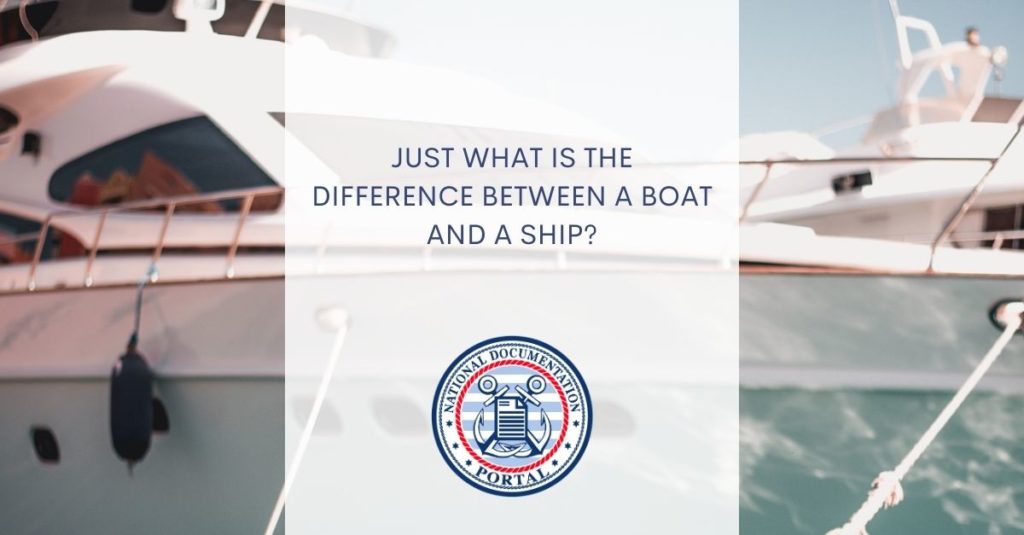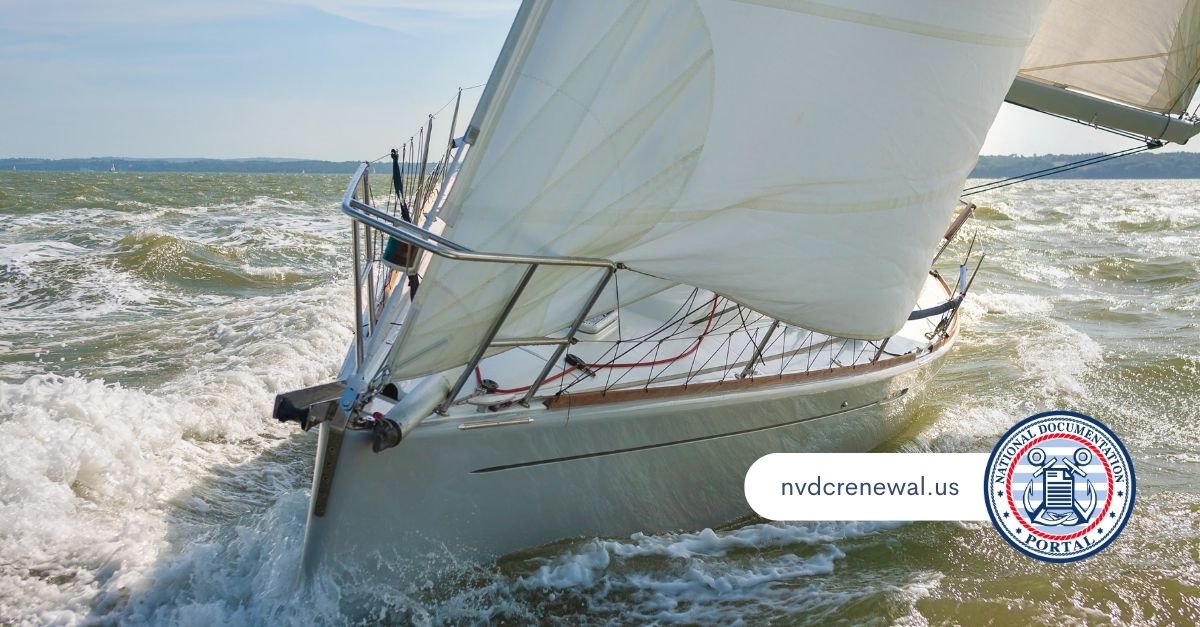Have you ever really wondered what is the difference between a boat and a ship? A major part of what we want our National Documentation Portal to be is a resource. We want our site to be somewhere where vessel owners can come to learn about vessel phrases and jargon so that they know everything they have to when they go out on the water.
Are Boat and Ship Synonyms?
The terms “boat” and “ship” are often used interchangeably in everyday language, but there is a technical distinction between the two based on their size, purpose, and capabilities. So, remember that while they may sound similar, they do not mean the exact same thing.
In this context, How is “Boat” Defined?
Generally speaking, a boat is a smaller, more easily maneuverable watercraft that is used for recreational purposes, fishing, or short-distance travel. It is typically small enough to be carried on a trailer and can be operated by a small crew or even a single person. Examples of boats include rowboats, sailboats, motorboats, and speedboats.
What is a “Ship”?
On the other hand, a ship is a larger vessel designed for commercial or industrial purposes, such as transporting cargo, carrying passengers, or serving military functions. Ships are usually much larger than boats and require a professional crew to operate them. They are capable of long-distance voyages, often crossing oceans. Examples of ships include cargo ships, cruise ships, oil tankers, and aircraft carriers.
Why Would a Vessel Owner Have to Know the Difference?
The truth is that, for the most part, a vessel owner may not have to know the difference, necessarily. However, the law does look at them differently. Indeed, different laws and regulations may apply to boats and ships, including licensing, safety standards, and operational restrictions. For example, insurance policies and liability coverage may differ based on whether the vessel is considered a boat or a ship. Understanding the classification can help vessel owners obtain the correct insurance coverage and protect themselves from potential risks.
The Difference Between Ships and Boats When Out on the Water
On land, in conversation, it may very well feel like these two words are synonyms. However, there are differences to consider when at sea. For example, ships, due to their size and potential for carrying hazardous cargo, may have restricted areas or follow specific navigational rules. Being aware of these restrictions can help boat operators avoid potentially dangerous situations. Plus, understanding the terminology allows vessel owners to communicate effectively with other boaters, maritime authorities, or port personnel. Using the correct terminology helps ensure clear and accurate communication, especially in emergency situations or when requesting assistance.
A Site to Answer Qs Like “What is the Difference Between a Boat and a Ship?”
Whether you have a vessel or a ship, so long as it measures at least five net tons and is wholly owned by an American citizen (such as yourself) then you can register it with the USCG. To do so quickly, easily, and efficiently, you can do so through our site. Plus, you can fill out so many other kinds of vessel documentation as well.


